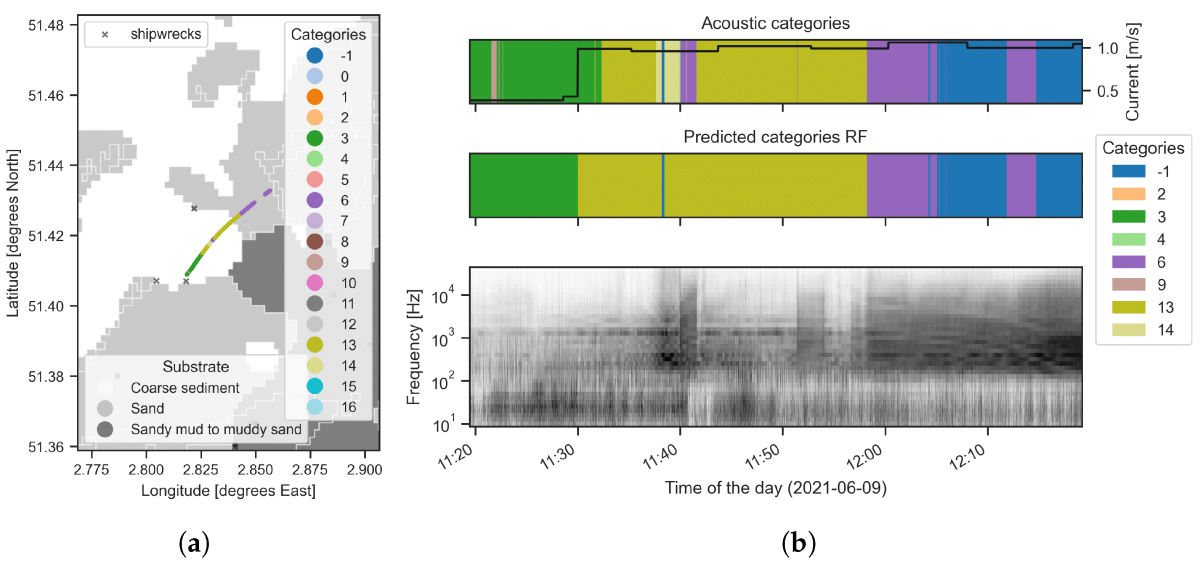The user organisation
The Flanders Marine Institute (VLIZ) is an autonomous Belgian non-profit organization which conducts interdisciplinary research on the ocean, seas, coast and estuaries. Its mission is to strengthen science-based knowledge and share it as widely as possible. VLIZ uses new technologies, such as robotics, and focuses on innovation and valorisation. Research areas include the ocean and seas, coasts and tidal systems as well as areas where Flemish marine scientists are or were active.
EMODnet services used
EMODnet’s Human Activities (Route_density 2020, 2021, 2022), Bathymetry (Mean bathymetry) and Seabed Habitats (EUSeaMap (2021) Broad-Scale Predictive Habitat Map - EUNIS 2007 classification 200m simplification) data was used, in combination with other data sources including acoustic data from VLIZ- Integrated Marine Informations System (IMIS), Habitat suitability maps from Van Lancker et al. (2012), several RBINS ERDDAP data, shipwreck location data from Wrakken bank and weather forecast data from Meetnet Vlaamse Banken. These data were used to determine whether underwater sound in the Belgian part of the North Sea correlates with environmental parameters such as bathymetry, seabed habitat and shipping density (alongside other environmental parameters available from other sources).
These data provided an understanding of when and where certain soundscapes (collection of sounds at certain locations) happen and if they can be correlated with other environmental factors. It was discovered that the soundscapes were indeed correlated with these environmental factors and that by combining some of the parameters it could be predicted which soundscape could be heard at specific locations and times.
Access to standardised and interoperable data is a key challenge that EMODnet helped overcome and which led to two publications listed in the references section.
Impact of EMODnet
Access to EMODnet data, in a centralised way, made a positive impact because it made it possible to retrieve environmental information from the Belgian part of the North Sea, which would have been impossible – or very time consuming – otherwise. Further, having access to data via webservices makes this research reproducible.

References
- Parcerisas, C.; Roca, I.T.; Botteldooren, D.; Devos, P.; Debusschere, E. Categorizing Shallow Marine Soundscapes Using Explained Clusters. J. Mar. Sci. Eng. 2023, 11, 550. https://doi.org/10.3390/jmse11030550
- Code available at: https://github.com/lifewatch/categorizing_soundscapes
- Parcerisas, C.; Botteldooren, D.; Devos, P.; Debusschere, E. Clustering, categorizing, and mapping of shallow coastal water soundscapes. Forum Acusticum https://appfa2023.silsystem.solutions/atti/001070.pdf
BPNSdata Python package: https://github.com/lifewatch/bpnsdata
